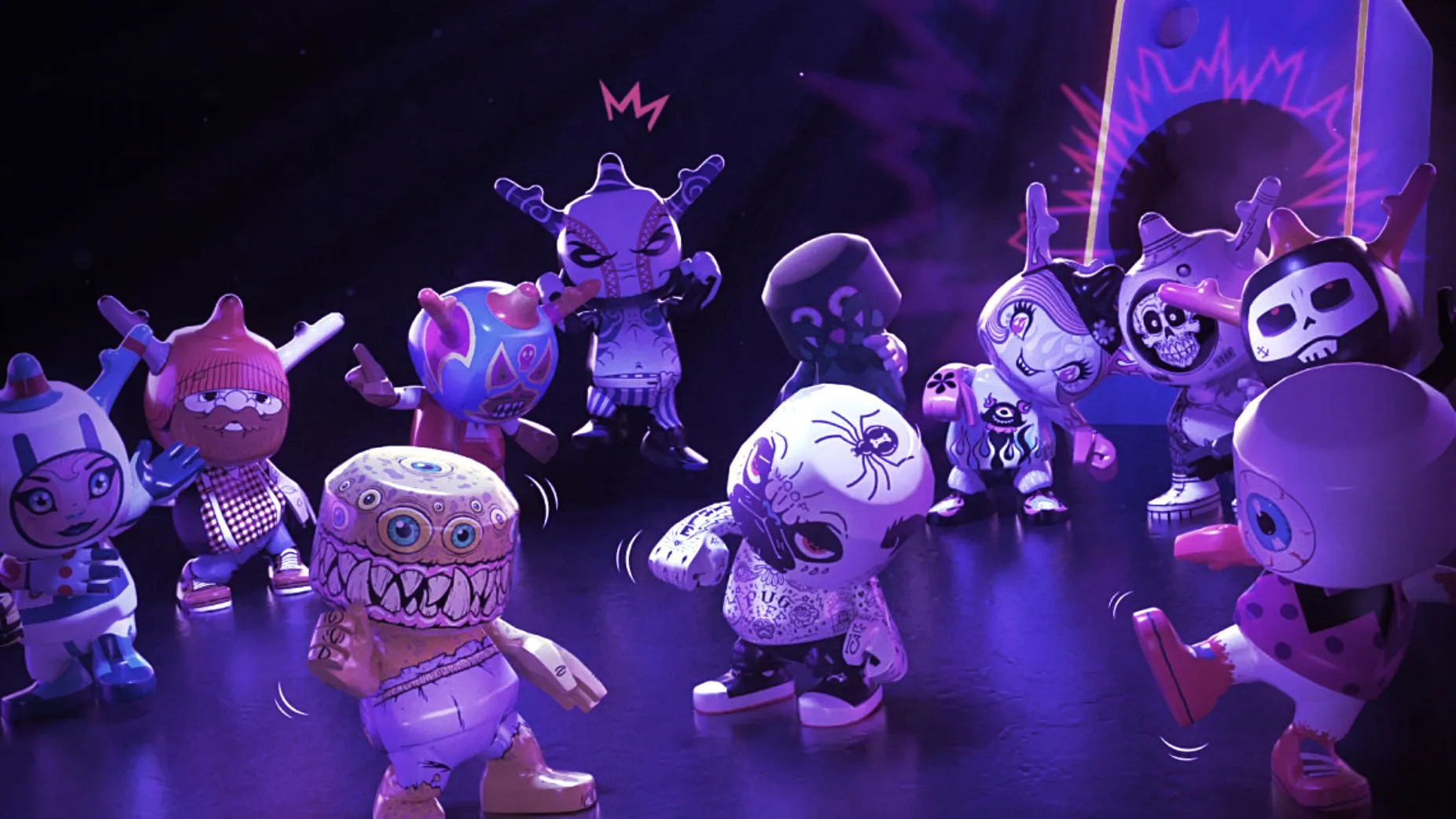Mythical Games CEO John Linden says his company has been accused of “not being Web3 enough.” Buckle up, degens—that’s about to change.
Blockchain gaming studio Mythical Games—along with 22 partner companies and a handful of big-name advisors—announced a foundation, DAO, and token Wednesday in an effort to bring decentralization to Web3 gaming.
The Mythos Foundation’s launch partners include game publishers like Ubisoft, Krafton, Netmarble, Kakao Games, Com2uS, CM Games, and others.
The foundation will also include heavy hitters in esports like FaZe Clan, Gen.G, Sandbox Gaming, and EVOS, to name a few. And in Web3, Mythos has gathered Animoca Brands, Klaytyn, Hadean, LINE Blockchain, and Oasys.
“There’s probably another five companies that have already signed, but we’re just not quite ready to announce them yet,” Linden told Decrypt in an interview.
Mythos Foundation also boasts an impressive roster of initial advisors, including former Sanrio COO Rehito Hatoyama, Animoca Brands Chairman Yat Siu, 100 Thieves’ Chief Product Officer Pete Hawley, FaZe Clan’s Chief Corporate Alliance Officer Jaci Hays, former Twitter COO Adam Bain, Polygon Studios President Ryan Wyatt, and more, according to the announcement.
From the music industry, electronic music duo The Chainsmokers and OneRepublic’s Ryan Tedder have also joined the Mythos Foundation as advisors.
The foundation’s job will be to oversee the Mythos DAO, a decentralized community with a new Ethereum ERC-20 token Mythos (aka MYTH), not to be confused with the Binance Smart Chain Mythos token. MYTH holders will be able to vote on ecosystem decisions and submit proposals.
The Mythos Foundation will also have to decide on cross-chain matters, NFT standards, esports-related decisions, guild support, and policy changes—moves likely to establish some level of consistency across crypto gaming.
In addition to being a governance token, MYTH will also be implemented as the main currency in Mythical Games’ NFT marketplace and will be used to secure Mythical’s blockchain as well.
“The one thing that we don’t really care for in the industry right now is single-game public mainnet tokens,” Linden said, explaining why MYTH will be a multifunctional token.
The Activision and Seismic Games alum says he hopes the Mythos Foundation and DAO will be able to function as a kind of “Web3 alliance” in the video game industry.
He also hopes that Mythos will “connect East and West together” to provide compatible, streamlined gaming experiences around the world.
The Mythos Foundation, DAO, and token announcement mark a big shift for Mythical, who’s been known up until now as the developer of games like “Blankos Block Party” and “NFL Rivals.”
“We’ve been called very Web 2.5,” Linden said of Mythical Games. “And I’m like, ‘That’s cool. I feel like we’re moving to Web 2.7.’”
This slow but sure movement toward Web3 is actually all a part of the plan. For instance, it took Mythical about a year to get “Blankos” on the Epic Games Store—but they succeeded.
And Linden sees big corporate allies as imperative to Web3 gaming’s success.
“The App stores—whether it’s mobile, or PC, or possibly eventually console—I think they’re pretty important if you’re going to get the game into a mainstream economy,” he said. “And I think the only way Web3 really is valuable long-term is [as] a mainstream economy.”
How many gamers will Web3 need to sustain itself? Probably more than you think.
“You really need to have tens of millions of people in these ecosystems to truly have a fulfilling economy long-term,” Linden said.
It’s not just about App store policies, though—gamers also need more time to get accustomed to Web3. Linden thinks they’ll come around, eventually.
Though gamers “love the functionality” of Web3, said Linden, “They don’t fully care about all the concepts of crypto quite yet or blockchain quite yet.”
And Mythical wants everyone playing its games—not just Web3 enthusiasts.
“It’s an evolution, not a revolution,” Linden said.

